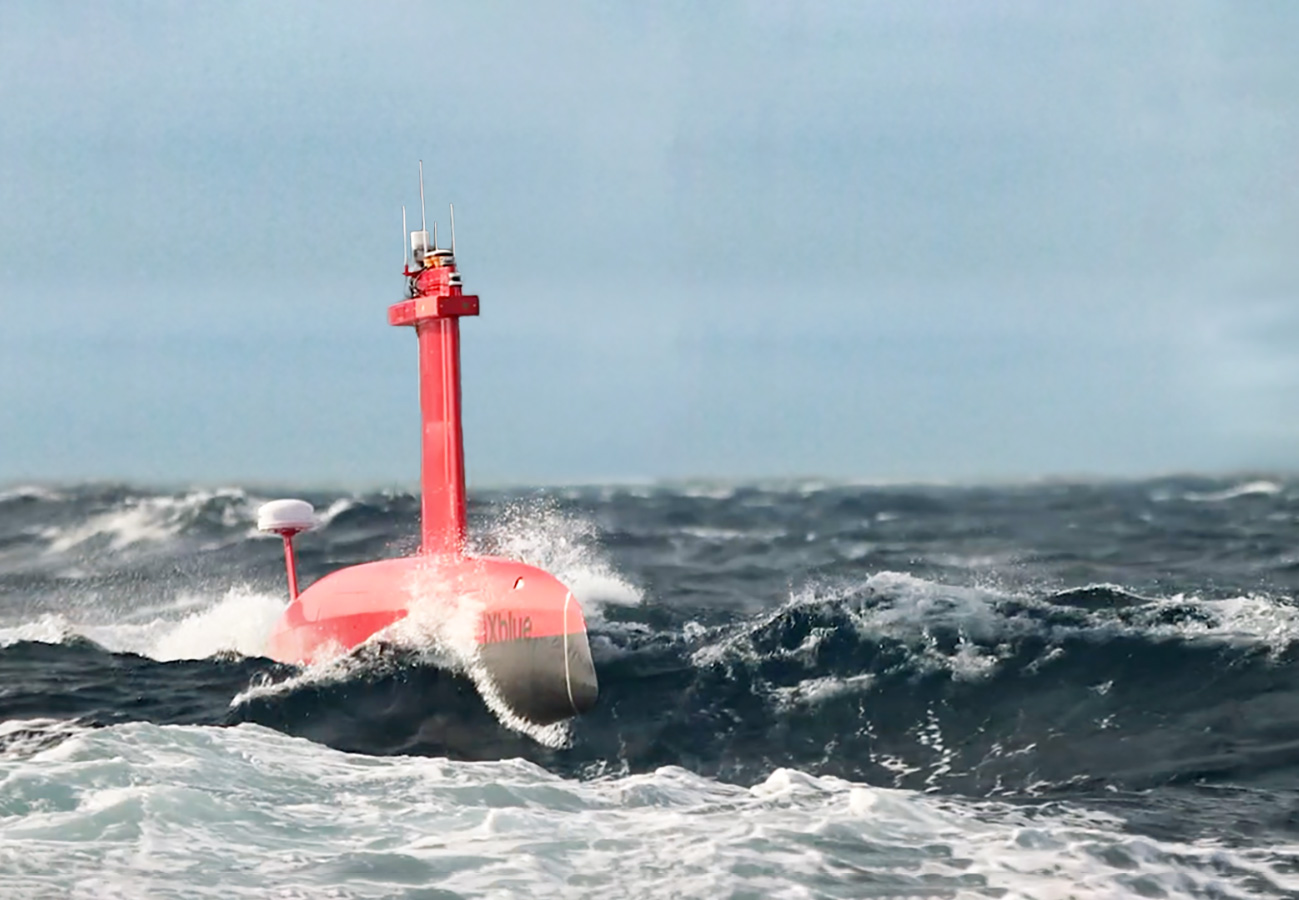- Maritime
British Antarctic Survey selects DriX USV to enhance its scientific capabilities
The British Antarctic Survey (BAS), a world-leading centre for polar science and operations, adds iXblue DriX Uncrewed Surface Vessel (USV) to its advanced robotic survey means. Deployed from polar research stations and from the British polar research ship RRS Sir David Attenborough, the DriX USV will help BAS conduct multi-disciplinary sciences such as surveying the impact of ocean currents on melting ice flow or mapping the seabed in the polar regions.
A versatile platform able to deploy various sensors with multiple missions’ capabilities, the DriX USV will be equipped with CDT, ACDP, MBES and MetOcean sensors and will help BAS capture data from the extreme polar environments.
Pierre Dutrieux, Ocean and Ice Research Scientist at BAS, explains: “DriX offers a mix of excellent sea-keeping and mission endurance to observe treacherous near-glacier ocean and seabed processes repeatedly with high data accuracy, opening new perspectives for polar discoveries.”
“We would like to thank the British Antarctic Survey for trusting our DriX USV as they turn to unmanned systems for their cutting-edge scientific operations in the challenging environments of polar regions”, Regis Blomme, Sales Director at iXblue comments. “We’re very proud to have been selected by such a leading-edge research institute and it is an honor for iXblue to be part of the BAS ocean exploration operations.”
About British Antarctic Survey
British Antarctic Survey (BAS), an institute of the Natural Environment Research Council (NERC) and part of UKRI, delivers and enables world-leading interdisciplinary research in the Polar Regions. Its skilled science and support staff based in Cambridge, Antarctica and the Arctic, work together to deliver research that uses the Polar Regions to advance our understanding of Earth as a sustainable planet.
Through its extensive logistic capability and know how BAS facilitates access for the British and international science community to the UK polar research operation. Numerous national and international collaborations, combined with an excellent infrastructure help sustain a world leading position for the UK in Antarctic affairs.
For more information visit our website www.bas.ac.uk or social media; TW @BAS_news, FB @BritishAntarcticSurvey, LI@british-antarctic-survey, IG @britishantarcticsurvey



